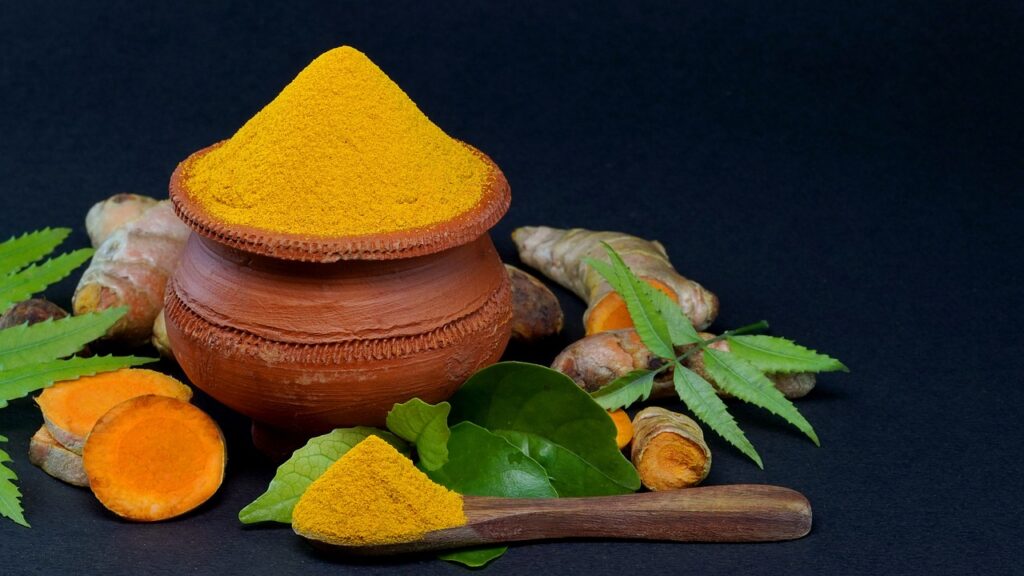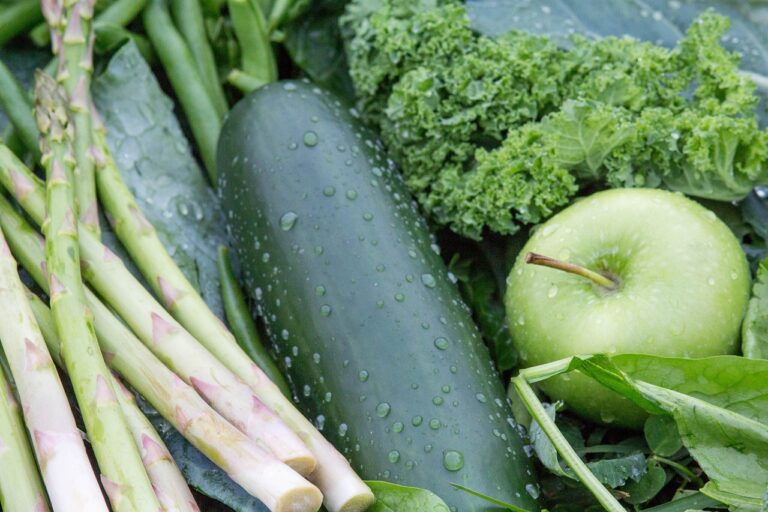Turmeric, a vibrant yellow-orange spice derived from the root of the Curcuma longa plant, has been a cornerstone of traditional medicine, particularly in India and China, for thousands of years. This potent spice is renowned not only for its culinary uses but also for its impressive health benefits. In recent years, modern science has begun to catch up with ancient wisdom, confirming the myriad “Proven Benefits of Turmeric.”
Turmeric is more than just a spice that adds color and flavor to dishes; it is a powerhouse of medicinal properties that can positively impact your health. The active compound in turmeric, curcumin, is primarily responsible for its therapeutic effects. Numerous studies have substantiated the “Proven Benefits of Turmeric,” making it a popular supplement for those seeking natural health solutions. From reducing inflammation to enhancing cognitive function, the benefits of turmeric are extensive and well-documented. This blog will explore the top 15 proven benefits of turmeric, shedding light on why this ancient spice is considered a modern-day superfood.

Contents
ToggleProven Benefits of Turmeric
1. Anti-Inflammatory Properties
Turmeric’s most well-known benefit is its powerful anti-inflammatory properties. Chronic inflammation is a root cause of many diseases, including heart disease, cancer, and Alzheimer’s. Curcumin, the active ingredient in turmeric, inhibits several molecules known to play major roles in inflammation. Studies have shown that curcumin can be as effective as some anti-inflammatory drugs, without the side effects.
2. Antioxidant Effects
Oxidative damage is believed to be one of the mechanisms behind aging and many diseases. Turmeric boasts strong antioxidant properties that neutralize free radicals, which are highly reactive molecules with unpaired electrons. Additionally, curcumin boosts the activity of your body’s own antioxidant enzymes, creating a double-edged effect against oxidative stress.
3. Improved Brain Function
Curcumin crosses the blood-brain barrier and has been shown to lead to various improvements in the pathological process of neurodegenerative diseases. It can increase brain levels of Brain-Derived Neurotrophic Factor (BDNF), a type of growth hormone that functions in the brain. Many common brain disorders have been linked to decreased levels of this hormone, so curcumin can delay or even reverse brain diseases and age-related decreases in brain function.
4. Lower Risk of Heart Disease
Heart disease is the number one cause of death in the world. Turmeric’s curcumin may help reverse many steps in the heart disease process. The main benefit of curcumin when it comes to heart disease is improving the function of the endothelium, which is the lining of your blood vessels. Endothelial dysfunction is a major driver of heart disease and involves an inability of the endothelium to regulate blood pressure, blood clotting, and various other factors.
5. Cancer Prevention
There is a significant amount of evidence suggesting that curcumin can reduce angiogenesis (growth of new blood vessels in tumors), metastasis (spread of cancer), as well as contribute to the death of cancerous cells. Various studies have shown that curcumin can reduce the growth of cancerous cells in the laboratory and inhibit the growth of tumors in test animals.
6. Anti-Aging Benefits
Due to its ability to combat inflammation and oxidation, turmeric is often suggested as an anti-aging supplement. Curcumin can prevent many age-related chronic diseases, which means it could have benefits for longevity as well.
7. Improved Digestive Health
Turmeric can stimulate the production of bile by the gallbladder, which may help improve digestion. It is known to help with bloating and gas and is being studied as a treatment for irritable bowel syndrome (IBS). The anti-inflammatory and antioxidant effects of curcumin can also contribute to healthier digestion.
8. Enhanced Skin Health
Turmeric has been used in Ayurvedic medicine for centuries as a treatment for various skin conditions. Its anti-inflammatory, antimicrobial, and antioxidant properties can help reduce acne, psoriasis, eczema, and even wound healing. Topical application of turmeric can also improve skin elasticity and reduce the appearance of scars.
9. Joint Pain Relief
Turmeric is a popular remedy for joint pain, primarily due to its anti-inflammatory properties. Studies have shown that curcumin can help reduce the symptoms of arthritis and may be more effective than some anti-inflammatory drugs.
10. Boosted Immune System
The immune-modulating effects of curcumin have been shown to help regulate the immune system. This is particularly beneficial for individuals with autoimmune conditions where the immune system mistakenly attacks the body’s own tissues.
11. Better Mood and Mental Health
There is growing evidence that curcumin can boost levels of serotonin and dopamine, both of which are chemicals in the brain that regulate mood and are linked to depression. Some studies suggest that curcumin can help alleviate symptoms of depression and anxiety, often with results comparable to pharmaceutical drugs.
12. Blood Sugar Regulation
Turmeric can help moderate insulin levels and improve glucose control, making it beneficial for people with diabetes or those at risk. Its anti-inflammatory properties also help reduce complications from diabetes, such as nephropathy and retinopathy.
13. Weight Management
Curcumin has been shown to help manage weight and prevent metabolic-related diseases. It can enhance the production of bile, a digestive juice that helps in emulsifying fat, and increase metabolic rate, thereby aiding in weight loss and preventing obesity.
14. Detoxification
Turmeric supports the liver’s ability to detoxify the body. Curcumin boosts the liver function by increasing the production of vital enzymes that detoxify the blood. This makes turmeric an excellent natural liver detoxifier.
15. Improved Cardiovascular Function
Apart from reducing the risk of heart disease, turmeric also enhances overall cardiovascular function. It helps in reducing cholesterol levels and improves the endothelial function, which is crucial for maintaining a healthy cardiovascular system.
The myriad “Proven Benefits of Turmeric” underscore why this ancient spice is hailed as a modern-day superfood. From its potent anti-inflammatory and antioxidant properties to its ability to enhance brain function and support heart health, turmeric offers a natural and effective way to boost overall well-being. Whether you incorporate turmeric into your diet or opt for curcumin supplements, the health benefits are substantial and well-supported by scientific research. Embrace the power of turmeric to unlock its potential benefits and pave the way for a healthier, more vibrant life.
People Also Ask
1. How does turmeric help with inflammation?
Turmeric helps with inflammation primarily due to its active compound, curcumin, which has powerful anti-inflammatory properties. Curcumin inhibits molecules that play a significant role in inflammation, such as cytokines and enzymes. Studies have shown that curcumin can be as effective as some anti-inflammatory drugs, without the associated side effects, making it a popular natural remedy for chronic inflammatory conditions.
2. Can turmeric improve brain function and memory?
Yes, turmeric can improve brain function and memory. Curcumin, the active ingredient in turmeric, can cross the blood-brain barrier and has been shown to increase levels of Brain-Derived Neurotrophic Factor (BDNF), a hormone that boosts the growth and survival of neurons. Higher levels of BDNF are associated with improved cognitive function and memory, and may even help delay or reverse brain diseases like Alzheimer’s.
3. What are the benefits of turmeric for skin health?
Turmeric offers several benefits for skin health due to its anti-inflammatory, antimicrobial, and antioxidant properties. It can help reduce acne, eczema, psoriasis, and even assist in wound healing. Additionally, turmeric can improve skin elasticity, reduce the appearance of scars, and give the skin a natural, healthy glow. Applying turmeric topically or consuming it can lead to healthier, more radiant skin.
Trendy Apps About Health And Food
If you are a health enthusiastic then you might wanna try some best trendy apps to help you with your food and health.
MyFitnessPal
MyFitnessPal is renowned for its comprehensive food database, which includes over 14 million foods. It makes food logging easy with features like barcode scanning and a robust breakdown of daily macronutrient intake. This app is ideal for those looking to track their food intake meticulously and gain insights into their nutritional habits.
Fooducate
Fooducate focuses on not just calorie counting but also the quality of calories consumed. It provides detailed nutritional information and assigns grades to foods based on their healthiness. The app also offers community support and educational tips on nutrition, making it a great choice for those who want to learn more about healthy eating and improve their dietary choices.
PlateJoy
PlateJoy offers personalized meal plans designed by nutritionists, catering to various dietary preferences and restrictions. The app generates shopping lists and can integrate with grocery delivery services. It’s especially beneficial for those with specific dietary needs, such as diabetics or individuals on low FODMAP plans, providing tailored meal plans that align with their health goals.





